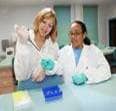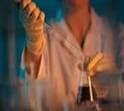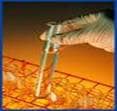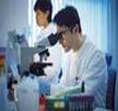INTRODUCTION
Medical Laboratory Technology is an allied health profession which is concerned with the diagnosis, treatment and prevention of disease through the use of clinical laboratory tests which help doctors to detect, diagnose and treat diseases. They collect the information's needed, sampling, testing, reporting and documentation of these investigations.




The Medical Laboratory Technologists/technician may be assigned to a specialized area of work in a large medical lab. In small labs, they may perform a variety of tests or all areas of lab work. Some of the duties of an MLT include collecting blood samples from patients and identifying abnormal blood cells, assuring safe transfusion of blood products, culturing micro-organisms to determine their identity and susceptibility to antibiotics, detecting a cancerous tumor with DNA technique, performing cultures and identifying bacteria and viruses, analyzing body fluids to determine chemical and biological components. Assuming administrative functions relative to reporting and recording results of tests conducted in the laboratory, maintaining accurate clinical records, selecting and evaluating laboratory equipment and new test methodologies and performing other duties as may be assigned by the laboratory supervisor.
Medical technologists work in five major areas of the laboratory i.e., in Blood banking, Clinical Chemistry (chemical analysis of body fluids), Hematology (blood related), Immunology (study of immune system) and Microbiology (study of bacteria and other disease organisms). They also work in the areas of cytotechnology (study of human tissue), phlebotomy, urinalysis, coagulation, parasitology and serology. Phlebotomists draw and test blood where as Blood bank technologists determine correct blood types for transfusions. Histology technicians cut and stain tissue samples.
The career of lab a worker depends on academic and technical skills. A certified medical laboratory technician may find a challenging career in a hospital, minor emergency centers, private laboratory, blood donor centers, doctor's office or clinics. A technician becomes a technologist through further education and work experience.
Technologists can advance to supervisory or management positions in labs and hospitals. They can also work as
• Laboratory manager/Consultant/supervisor. Health care Administrator
• Hospital Outreach coordination.
• Laboratory information system Analyst/Consultant,
• Educational consultant / coordinator/ director.
• Health and safety officer etc.
They can also get employed in
• Molecular diagnostics, molecular biotechnology companies
• In vitro fertilization laboratories
• Research labs.
News - Medical Laboratory Technology
The William Pepper Laboratory of Clinical Medicine of the University of Pennsylvania, which celebrated its centennial on December 4, 1995, appears to be the oldest clinical laboratory in the US. Its founder and his successors have been committed to ensuring that research and teaching are considered as important as the service role of the clinical laboratory. We highlight here some of the major accomplishments and events affecting the evolution of the laboratory.
Established in 1894, the William Pepper Laboratory of Clinical Medicine opened in 1895 as a fully equipped facility for performing routine laboratory work as well as research. The third Director of the William Pepper Laboratory, Herbert Fox, after investigating the Loomis Laboratory in New York City determined that it "was not in any sense a part of the medical clinic of Bellevue Hospital" (1). The Pepper Laboratory, then, can claim to be the first clinical laboratory in the US to be associated directly with a medical clinic. In 1994-95, the University of Pennsylvania celebrated the centennial of the Pepper Laboratory by holding a symposium, "The Clinical Laboratory in the Future of Medicine"; establishing endowed William Pepper Laboratory fellowships; publishing a history of the William Pepper Laboratory of Clinical Medicine; and erecting a permanent exhibit illustrating that history.
National Medical Laboratory Professionals Week
Each year, National Medical Laboratory Week is celebrated in late April. National Medical Laboratory Professionals Week provides the profession with a unique opportunity to increase public understanding of and appreciation for, clinical laboratory personnel. This activity, which takes place the 4th week in April each year, is coordinated by a collaborative committee with representatives from 10 national clinical laboratory organizations.
In the fall of 2005 the planning committee voted to officially change the name from National Medical Laboratory Week (NMLW) to National Medical Laboratory Professionals Week (NMLPW). This change was made to emphasize the person whose expertise is needed in the performance of laboratory testing and not the location where the testing is performed. Many members plan displays, open houses and various other activities in their institution or local area. Some have obtained proclamations by mayors or governors while others have been featured on local TV and radio stations. National Medical Laboratory Professionals Week has been successful in increasing the recognition of clinical laboratory science among the healthcare community and general public.
Horoscope - Career for Zodiac Signs
So if you are ready to take up this career just check out these sun signs which would be favourable in pursuing your career in this field.
 Taurus
Taurus
 Cancer
Cancer
 Leo
Leo
 Virgo
Virgo
 Libra
Libra
 Scorpio
Scorpio
 Aquarius
Aquarius
 Pisces
Pisces
Eligibility : Click here for more information
Institutes : Some of the prominent institutions offering courses in Medical Lab Technology can be had from the following links.. Click here for more information